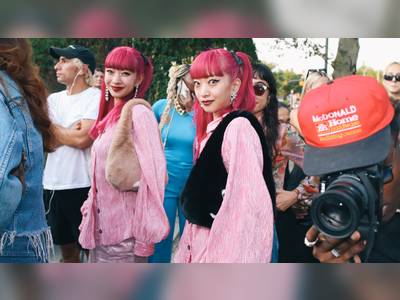The "all-natural" beauty trend was born from the relentless concerns that the new generation of users have for the environment. The cosmetics industry was born to honor beauty but contributes to global waste from plastic bottles or the overuse of chemicals in production. Studies show that this is not safe for health. Therefore, after a few decades of living in the dream of frivolous lipstick, Gen-Z shoppers have made a spectacular comeback to nature, gravitating to products derived from nature to slow down the negative effects of the industrialization era.
Not only that, but the return to nature has allowed people to find what they value in life. The obsession with the concept of "all-natural" is how modern humans find solutions to the removal of "toxins" (literally and figuratively) from life, as well as directly acknowledging the vital relationship between man and nature which has been long forgotten.
What makes the phrase "all-natural" unsustainable?
No one can deny the effectiveness or safety of products made with natural ingredients. However, if you only look at the sticker for assurance, your path to becoming a responsible consumer is far from the finish. Whether returning to nature or advancing to new techniques, the nature of the cosmetics industry has always prioritized luxury. Everything you see and use has been cleverly "beautified" so that the story is always as inspiring as possible.
Unfortunately, the behind-the-scenes story of these meaningful beauty messages does not always have a happy ending. Beauty with natural ingredients is not bad, but the exploitation of those materials still has many shortcomings, and can even harm its original noble purpose. First, the Earth's resources are always finite and the massive exploitation without accompanying conservation and development measures only exacerbates the existing exhaustion. Not only that, the cultivation and collection of rare plants can increase the risk of disrupting fragile ecosystems, not to mention creating a safety risk to those who harvest them. This is the case with prickly pear in Arizona or Morocco, vanilla in Madagascar, and frankincense in Somalia. Although these plants have high commercial and beauty value, they always have potential threats to the environment as well as dangers to the harvesters if they are not carefully and sustainably invested.
This is why some brands have chosen to use biotechnology to create compounds that "mimic" these natural ingredients. In some cases, they are a safe and sustainable solution for both the user and the environment. Therefore, it's important to take a better look at ingredients that are synthesized in the laboratory. Not everything "artificial" is necessarily bad. On the contrary, organic chemistry has been able to develop compounds that not only have identical molecules in nature but even provide them with a stable environment for their full use.
Conscious consumption does not require perfection.
You don't have to make yourself an extremist in pursuing a sustainable beauty journey by using only organic products instead of industrially produced ones. It will only make you tired and too busy to invest in self-care while still being uncertain about bringing the beauty and environmental protection effect you want.
Instead, be a smart consumer by reading and understanding the labels of the products you use and supporting brands that are transparent in production and empowerment. This will allow you to make more conscious choices with your purchases.













